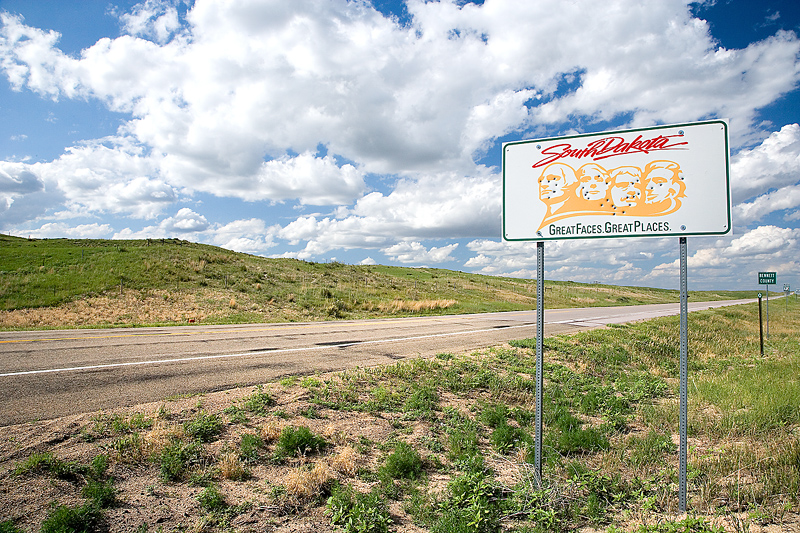The South Dakota Attorney General’s Office plans to call an Argus Leader Media reporter as a witness in an upcoming criminal trial related to the Flandreau Santee Sioux Tribe’s aborted marijuana operation.
Dana Ferguson, who covers politics and state government, received a subpoena Monday ordering her to appear at the Moody County trial of Eric Hagen, a consultant who helped the tribe set up a marijuana growing facility.
Ferguson joined several lawmakers and other journalists on a tour of the fledgling operation in October 2015. At the time, the tribe planned to open a recreational marijuana resort in an effort to spur economic development.
Amid strong criticism from state officials, including Attorney General Marty Jackley, the tribe abruptly abandoned the project, claiming to have burned the plants and shutting down the operation.
Jackley’s office filed charges against Hagen and Jonathan Hunt, two officials with Monarch America, a Colorado-based firm in the marijuana industry, for assisting the tribe. Hunt last year pleaded guilty to a drug conspiracy count. Hagen has pleaded not guilty to charges of conspiracy to possess, possession and attempt to possess more than 10 pounds of marijuana.
His trial is scheduled to begin May 22.
Argus Leader Media objects to the calling of Ferguson as a witness in the case.
“Commanding our reporter to testify in this case is not only troubling but unnecessary,” Argus Leader Media news director Cory Myers said. “There are multiple avenues for the attorney general to get testimony about the tour, including from any of the five elected officials present, without compromising our reporter’s role as a independent observer.”
Before requiring journalists to testify, Leslie said prosecutors should ask whether it’s necessary for the case or whether the information can be obtained elsewhere. In the case of the marijuana tour, tribal officials invited lawmakers to show them the facility and explain about safety precautions the tribe was taking to ensure the marijuana wouldn’t be used outside the resort. Five lawmakers attended.
“That’s never really appropriate,” Leslie said of forcing journalists to testify. “They are there to be independent observers on behalf of the people.”
Scott Parsley, a former state senator from Madison, and Spence Hawley, a representative from Brookings, were two of the five who went on the tour. Reached Thursday, both said they had not been subpoenaed in the case. Two others, Rep. Elizabeth May and former Rep. Paula Hawks, did not return messages.
David Bordewyk, the executive director of the South Dakota Newspaper Association, said he was not aware of any recent instances of journalists in South Dakota being forced to testify. The issue is troubling, he said, because journalists are supposed to be objective observers. Forcing them to testify could harm their ability to cultivate sources and inform the public.
“The bottom line is, journalists are not there to do the work of law enforcement or the government, but independent of that,” he said.
In an email, Jackley said that he has worked to avoid issuing subpoenas to journalists in his time as the state’s attorney general and, prior to that, U.S. attorney for the state of South Dakota.
“When a journalist does gain information that may be needed to provide to the jury, it is my general experience that defense attorneys have cooperated with stipulations that the photograph or video involved accurately shows what the evidence is to avoid a subpoena,” Jackley said.
As an example, he cited a story by Carson Walker, a former reporter for the Associated Press who interviewed John Graham. Graham was convicted in 2010 of the 1975 murder of American Indian Movement activist Anna Mae Aquash. Jackley said his prosecutors eventually determined they could get the information other ways and avoided calling Walker as a witness.
Walker said Friday that he did not recall getting a subpoena in the Graham case. But he did recall getting subpoenaed to testify in the case against convicted serial killer Robert Leroy Anderson. Walker, who worked for the Argus Leader when he did a jailhouse interview with Anderson, took the stand to confirm a quote from Anderson that appeared in his story of the interview.
Walker said he was OK with confirming matters that were in the record of his story. However, he would have fought prosecutors if they had sought his notes or access to sources.
“I think it’s always best to keep a reporter off the stand if at all possible,” he said.
Mark Barnett was the attorney general at the time of Anderson’s prosecution. Barnett, as well as former Attorney General Larry Long, did not return messages. Both are circuit court judges.
credit:argusleader.com



